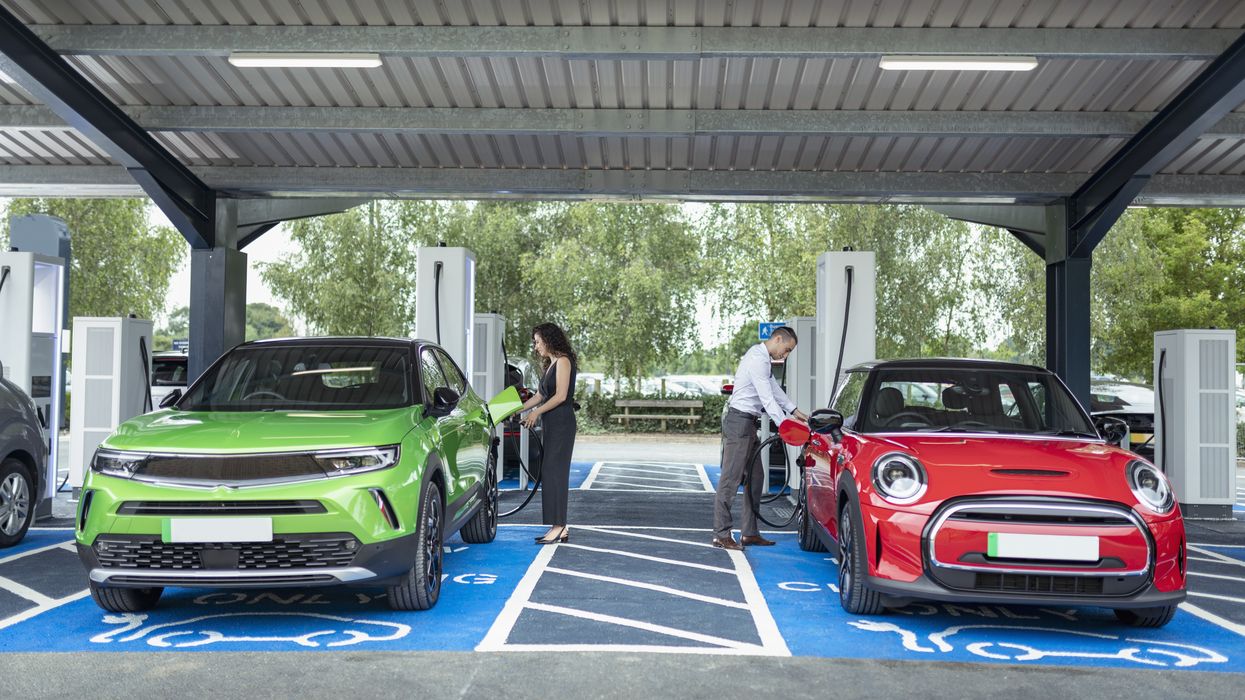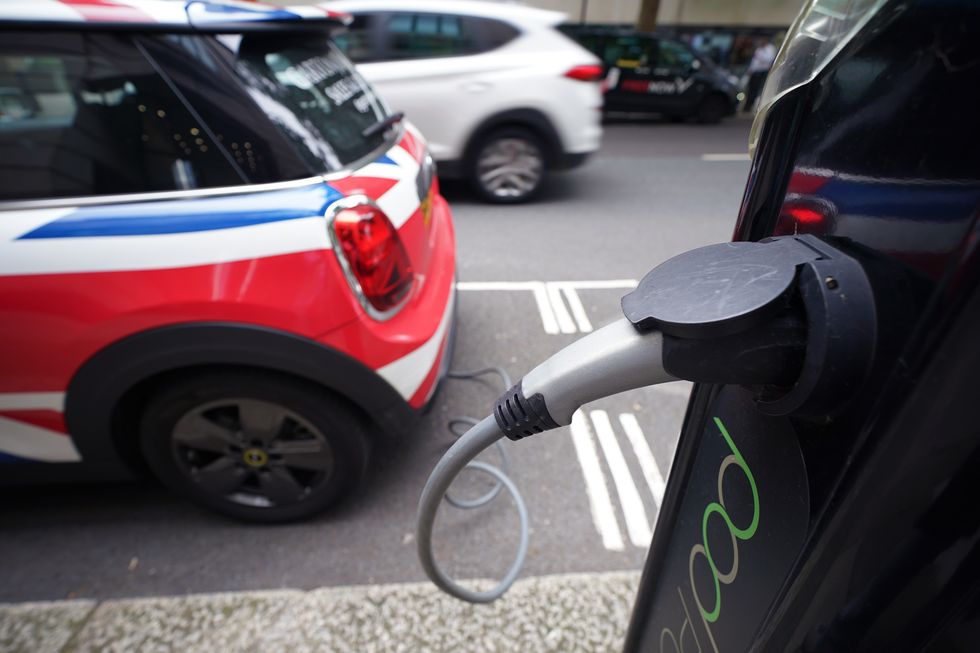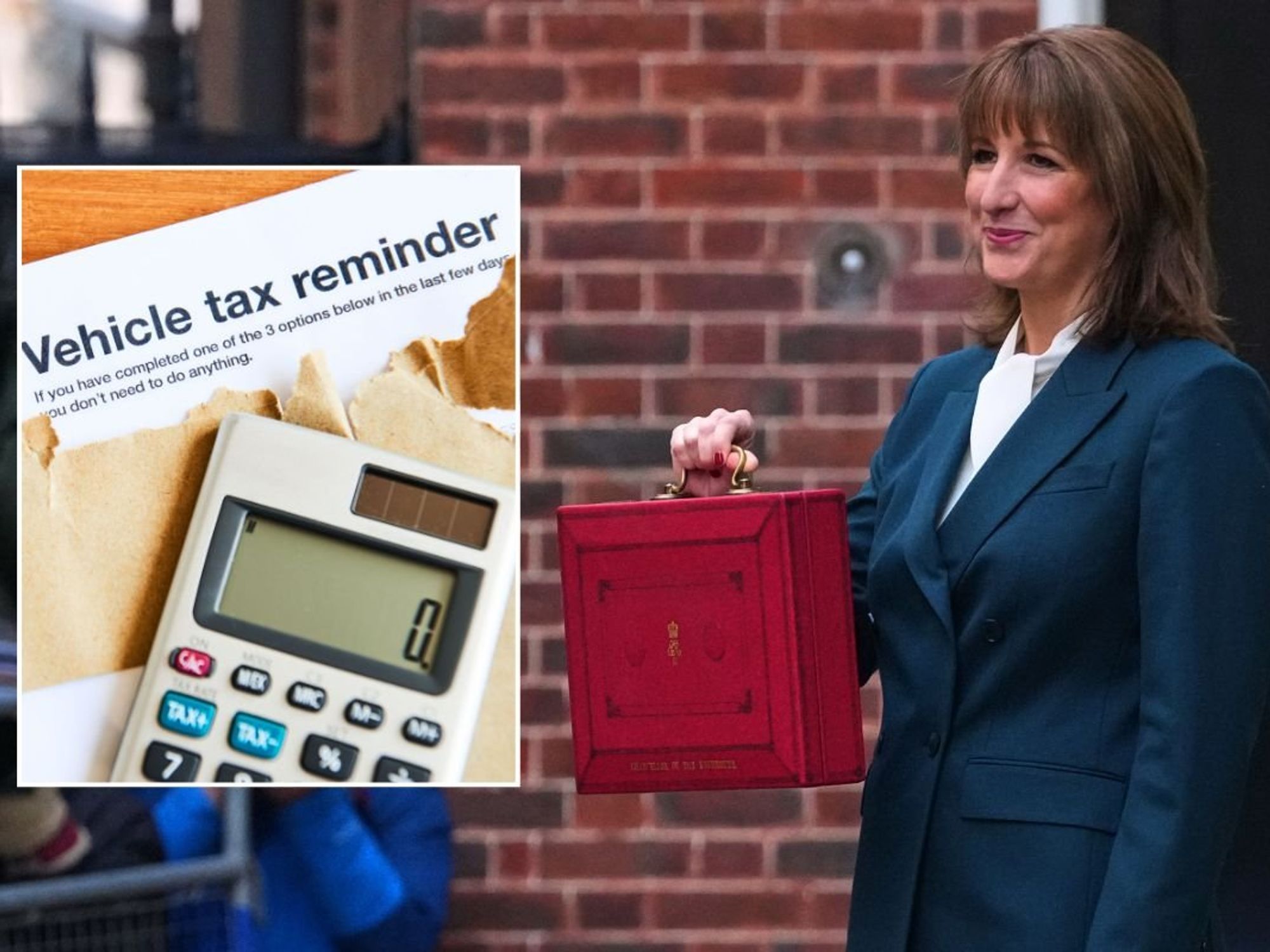More than 220 million electric vehicles to be on the road by 2030 despite car ban delay

There could be as many as 650 million EVs on the road by 2040
|GETTY

The report states that well over half of the EVs on the road worldwide have been sold since 2021
Don't Miss
Most Read
Latest
A new report has forecast that there will be 220 million electric passenger cars on the road by the end of the decade.
The World Energy Outlook 2023 report from the International Energy Agency (IEA) is predicting a 20 per cent increase in the number of sales that was forecast in the 2022 report.
Estimates show that this would cut oil demand in 2030 by around one million barrels of oil per day and boost electricity demand from road transport by 165 terawatt hours.
Zapmap estimates that there are around 900,000 fully electric cars on UK roads and a further 550,000 plug-in hybrids in the UK.
WATCH NOW: Labour's Steve Reed reacts to net zero delays
More than one million battery electric vehicles have been registered in the UK, with the equivalent of one EV being registered every minute.
The WEO report states that well over half of the electric cars on the road worldwide have been sold since 2021.
By the end of the decade, the Stated Policies Scenario (STEPS) estimates that electric cars gain a market share of 38 per cent in new car sales by 2030. In the Announced Pledges Scenario, this rises to nearly 45 per cent.
Commenting on the report, Lisa Watson, director of sales at Close Brothers Motor Finance, said: “The report released today from the International Energy Agency has predicted that 220 million electric vehicles will be on the road across the globe by 2030.
“Whilst this may seem promising, the UK has work to do to play its part in these predictions. An uptick in EV registrations, as evidenced in recent SMMT data, is largely skewed by fleet vehicles.
“Consumer demand is lagging behind, with our recent research finding that fewer people are considering an EV as their next car than this time last year. The Government needs to commit to infrastructure investment to ensure the UK is ready for widespread EV adoption.”
She added that the pushback of the 2030 ban on new petrol and diesel vehicles will hopefully lead to more EVs entering the used car market, allowing drivers to access cheaper zero emission vehicles.
In addition to the 220 million EVs predicted to be on the road by 2030, an estimated 650 million EVs could be on the road by 2040, by which time, fossil fuel demand would be dramatically reduced.
With the increased uptake of electric cars, the report states that sales of internal combustion engine cars could fall to between 55 million and 60 million by 2030.
Chris Pateman-Jones, CEO of Connected Kerb, also reacted to the report, highlighting the importance of electric vehicle sales in the near future.
He said: “The World Energy Outlook is crystal clear - inaction will come with huge costs.
“These costs are avoidable if we turn our global ambitions into meaningful action, from innovators, to policymakers, to charge point operators.
“Electric vehicles - set to increase tenfold by 2030 - are core to this, which puts installing charging infrastructure at the heart of the world's clean energy transition.
“Businesses and governments driving this global transformation, like Connected Kerb, must have their foot to the floor, because 2.4C warming can’t be the outcome of this century.”
LATEST DEVELOPMENTS:

Zapmap estimates that there are around 900,000 fully electric cars on UK roads
|PA
The WEO report also highlights efforts being made to improve other clean energy sectors including solar and offshore wind.










